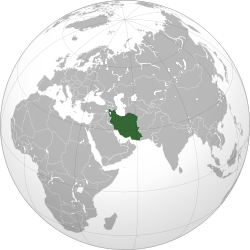Iran And The Taliban: A Problematic Alliance – Analysis
By IPCS
By Aryaman Bhatnagar
Iran has been accused of supplying weapons and providing training to the Taliban. The foreign troops in Afghanistan have often intercepted weapons, rockets and missiles that are said to have originated in Iran. Mohsen Milani in an interview to The Iran Primer claimed that Iran has no official relations or policy towards the Taliban but this does not preclude the possibility of some elements within the Revolutionary Guards extending support to it. Similarly, Iran could make use of non-state actors to supply weapons to the Taliban. What factors encourage Iran to extend support to the Taliban? How can this support be detrimental to Iran’s short-term and long-term interests?

Iran’s Afghan policy has always been tactical. The support for the Taliban is motivated by Iranian security concerns regarding the presence of American troops in Afghanistan. It has always wanted to prevent Afghanistan from being used as a base to launch attacks against Iran or undermine the Islamic Republic. This was evident in their support for the Northern Alliance against the Taliban during the 1990s. Similarly, the support for the Taliban presently is meant to undermine the American mission in Afghanistan and orchestrate a quick withdrawal of American forces. In this respect, support for the Taliban is consistent with the objective of ensuring the stability, security and regime survival.
However this works only while American troops remain in Afghanistan. In the short and long-term, the Taliban is detrimental to Iranian interests especially in achieving stability in its periphery. A stable Afghanistan is likely to serve a number of Iran’s objectives. It can encourage a repatriation of Afghan refugees who have become a serious socio-economic problem for Iran. Iran continues to host close to two million refugees as the deteriorating security situation in Afghanistan has slowed down the voluntary repatriation of Afghan refugees from Iran. Similarly, it could also possibly lead to the implementation of the 1973 Accord that determined the specific amount of water that would flow from the Helmand River to Iran and has not been implemented due to the conflict in Afghanistan – and so help resolve the festering the water dispute.
Moreover, a stable Afghanistan also offers the prospects of curbing the narcotics trade in Afghanistan, which has been escalating over the years due to the continuing conflict. It has caused a massive drug abuse problem in Iran and a great deal of instability in the border regions. While poppy cultivation is a huge source of revenue for the Taliban, the Afghan narcotics trade is heavily dependent on the insurgency as well. Thus, efforts at suppressing the insurgency also carry the possibility of checking the narcotics trade. Finally, stability is extremely important to protect Iranian economic investments in Herat in order to convert it into an Iranian sphere of influence and a security buffer zone.
In light of this, Iran’s support for the Taliban seems counter-productive. Although the quantum of support may be limited and may not account for the Taliban’s resurgence or success, Iran is playing a part in prolonging the destruction of and instability in Afghanistan.
These contradictions are likely to be exacerbated in the long-term since strengthening a group that Iran is incapable of controlling, and has the potential to become a major threat. Although Iran may want a strengthened Taliban at this stage to thwart the Americans in Afghanistan, it does not want a Taliban-led or dominated government in Kabul in the future. The Taliban regime in the 1990s posed a major security and ideological challenge to the Islamic Republic. Being staunchly anti-Shia, they were the ideological nemesis of the Iranian Shia theocracy. This ideology often led to significant violence as in the massacre of the Hazaras in Mazar-e-Sharif and Bamiyan, and the killing of the Iranian diplomats in Mazar-e-Sharif in 1997. Moreover, the resentment of the Sunni Iranian Baluchis, who have been waging an insurgency against the Islamic Republic, was actively fanned. The resurgence of the Taliban would also allow Pakistan and Saudi Arabia to increase their influence in Afghanistan due to their historical ties with the grouping. The increase in their influence would definitely be at the expense of Iran.
The resurgence of the Taliban in Afghanistan can thus pose a number of problems once again for Iran and challenge its growing influence in Western Afghanistan, destroying significant ideological and political objectives in the process. Given the current state of relations with the West it is unlikely that Iran is going to be in a position to influence the eventual outcome in Afghanistan. It may not be able to prevent a Taliban-led or dominated government from coming to power in the country.
Iran’s support for the Taliban is based on the belief that it can help Iran achieve its short-term objectives. However, it seems to be posing far greater problems for Iran, and is causing grave damage to Iranian interests both in the long-term, and the short.
Aryaman Bhatnagar
Research Intern, IPCS
email: [email protected]
